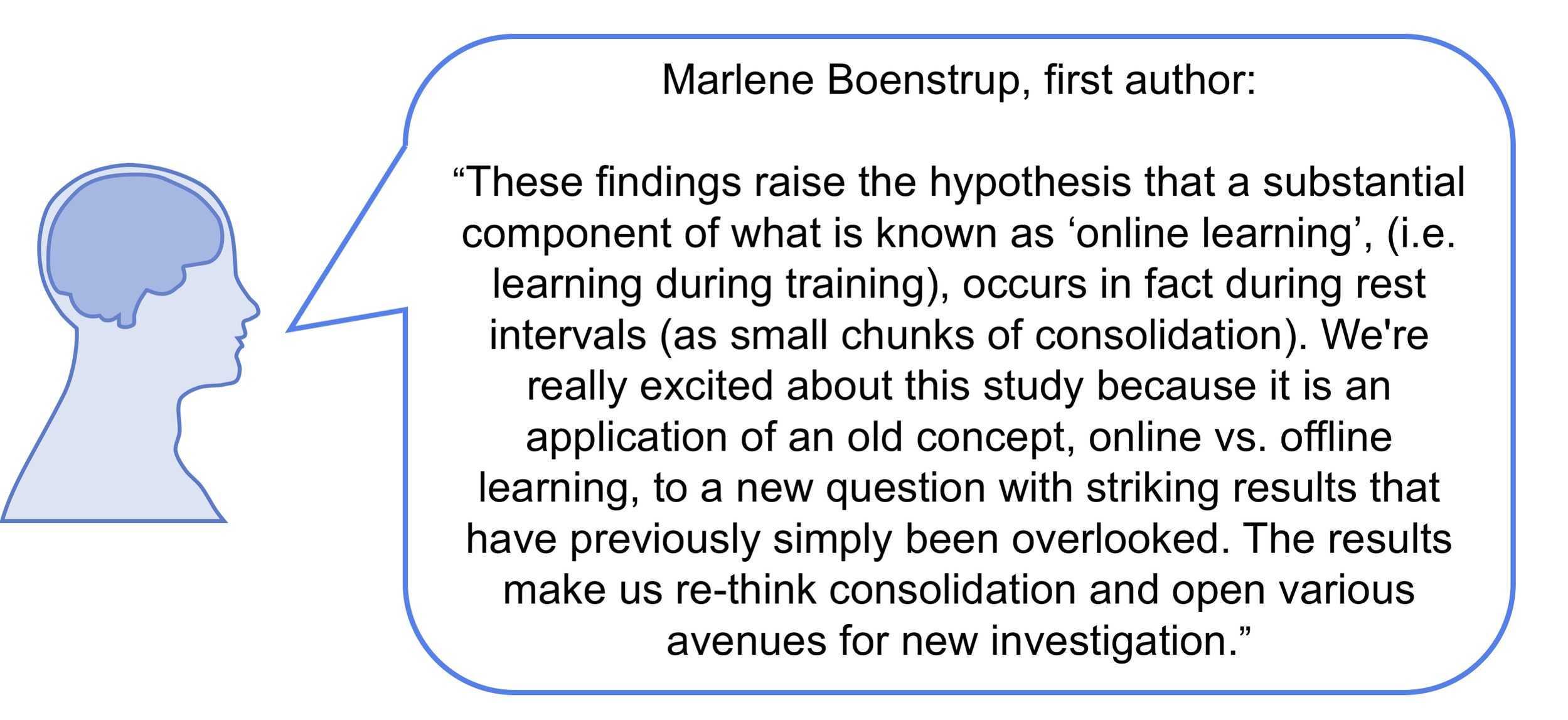Early Skill Learning Occurs Predominantly at Rest
Post by Lincoln Tracy
What's the science?
Learning a new motor skill typically consists of short periods of active practice—physically doing the task—interspersed with short periods of rest. The combination of practice and rest strengthens the memory in our brain so we can perform the skill better. Traditionally, the consolidation of a new skill has been thought to occur over a period of hours or days. This week in Current Biology, Bönstrup and colleagues examined the time course of practice and rest in how we learn new motor skills on an unprecedented short time scale.
How did they do it?
Healthy right-handed individuals were recruited to participate in a two-day study where they trained and were tested on a procedural motor-skill task on successive days. The motor task involved pressing keys on a keypad in a specific sequence of five key presses. Participants were taught the key press sequence on the first day of the study. They used their left—or non-dominant—hand to perform the key press sequence while seeing the sequence on a computer monitor. Participants completed 36 training trials on the first day. Each trial involved a 10 second period where the participants practiced the key press sequence, followed by a 10 second rest period. Participants returned to the laboratory the next day and were tested on their performance on the task. Nine trials were performed on the testing day. Throughout both the training and testing days the brain activity of participants was recorded by magnetoencephalography (MEG) to identify potential brain mechanisms that supported skill learning.
What did they find?
The authors found that the early learning of the motor skill was driven by increases in performance between practice periods. That is, there was a greater increase in the speed at which participants completed the key press sequences between the end of one trial and the beginning of the next, rather than over the course of each trial. They also found that this learning was predicted by oscillating beta-band (16 – 22 Hz) activity in frontoparietal regions of the brain. Specifically, downregulation of this oscillating beta-band activity at rest was identified as the intrinsic neural signature that went along with performance increases in-between trials.
What's the impact?
This study is the first to show that a substantial part of early skill learning occurs while we are at rest, and that these improvements can be predicted by activity in the frontoparietal region of our brains. These findings significantly change the way researchers traditionally think about the time it takes us to form a memory and learn new skills—they show this can occur over a period of seconds, rather than hours or days.
Marlene Bönstrup et al. A Rapid Form of Offline Consolidation in Skill Learning. Current Biology (2019). Access the original scientific publication here.


